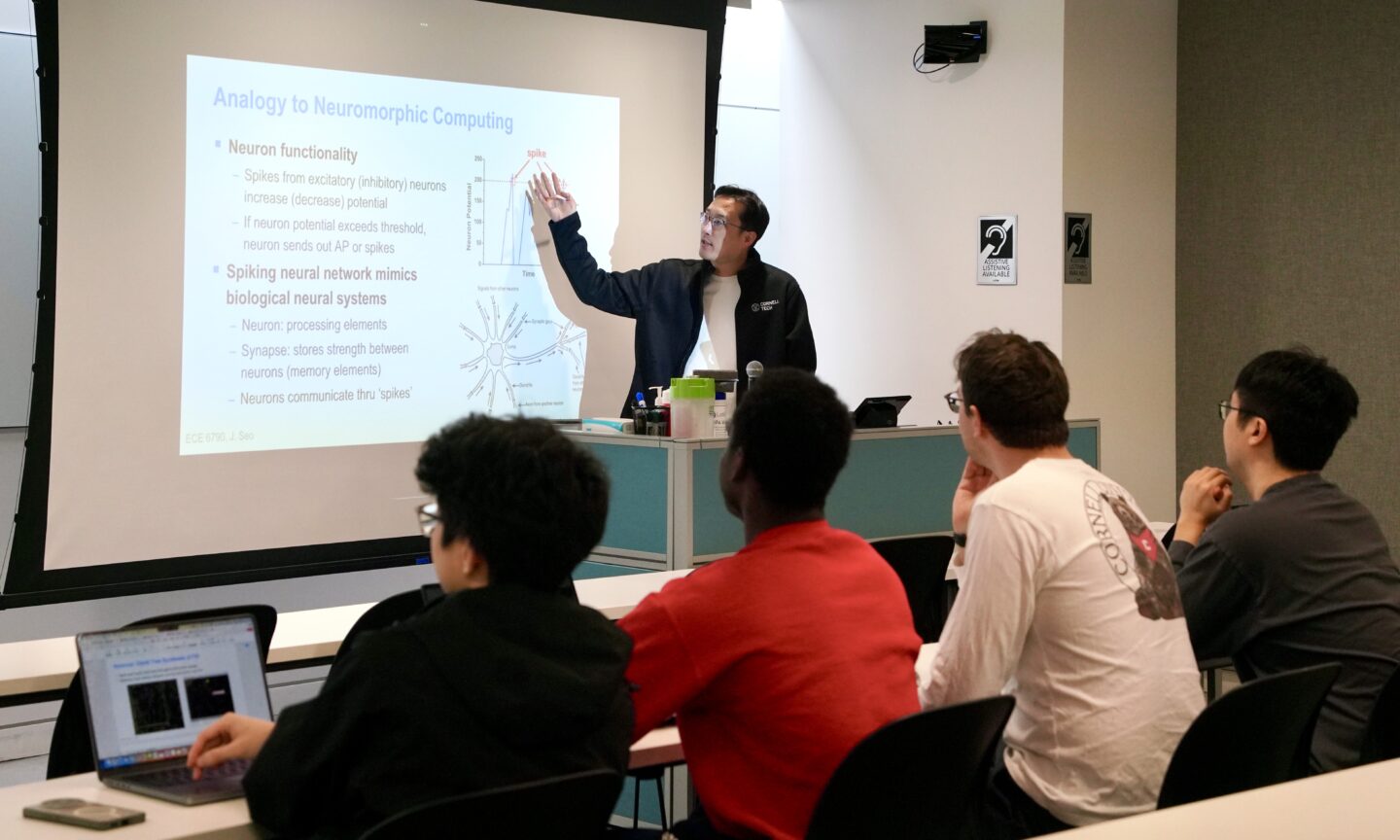Partnership with BrainChip Allows Cornell Tech Students Exposure to Neuromorphic Computing
Categories

Cornell Tech has partnered with BrainChip, the world’s first commercial producer of neuromorphic artificial intelligence, to introduce a new course in neuromorphic computing to its graduate students by joining the company’s University AI Accelerator Program. The Cornell Tech course on neuromorphic technology – computing that mimics the neural behavior of the human brain – was introduced to students in the electrical and computer engineering program in the spring 2024 semester.
BrainChip’s University AI Accelerator Program provides platforms, and guidance to students at higher education institutions with AI engineering programs training. Students participating in the program will have access to real-world, event-based technologies offering unparalleled performance and efficiency to advance their learning through graduation and beyond.
The course at Cornell Tech is currently being taught by Jae-sun Seo, associate professor of electrical and computer engineering. Seo joined Cornell Tech in 2023 and his research centers on hardware design of machine learning and neuromorphic algorithms as well as hardware-efficient AI algorithm design.
“Our goal at Cornell Tech is to develop leaders for the AI era who are capable of applying technical advancements emerging in industry to make a positive impact on society,” said Seo. “One of the best ways to do this is to partner with those in both the private and public sectors to advance practical technology solutions that solve real-world challenges. Working with BrainChip has allowed students to obtain the resources and learning experiences they need to succeed in neuromorphic computing.”
The goals of the partnership at Cornell Tech are to give students greater exposure and access to the field of neuromorphic computing and to create future leaders and drivers of progress in the industry. According to Seo, partnering with both the public and private sector helps advance the mission of creating leaders capable of applying technical advancements to positively impact society. In the field of neuromorphic computing specifically, this represents a big step toward that goal for the school’s graduates.
Neuromorphic solutions allow for faster systems that consume less power. BrainChip focuses on machines that consume less power by drawing on a system of “neurons” in order to do more with less. BrainChip’s neural processor, Akida™ IP, is an event-based technology that is inherently lower power when compared to conventional neural network accelerators. Lower power affords greater scalability and lower operational costs. Among the markets that BrainChip’s technology will impact are the next generation of smart cars, smart homes of today and tomorrow, and industrial IoT.
“Having the opportunity to work with an institution of higher learning like Cornell to advance the field of neuromorphic computing is why we developed the BrainChip University AI Accelerator Program,” said Tony Lewis, Chief Technology Officer, BrainChip. “In offering the latest tools and resources emerging from our work in neuromorphic computing, we can help students gain the understanding and real-world experience they need. We look forward to working with Cornell and welcome them to our growing AI Accelerator ecosystem.”
BrainChip University has implemented similar AI Accelerator Programs at a number of universities including Arizona State University, Carnegie Mellon University, Rochester Institute of Technology, the University of Oklahoma, and the University of Virginia.





